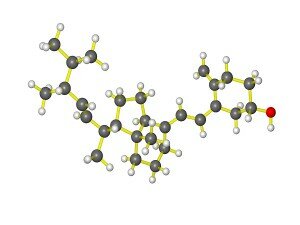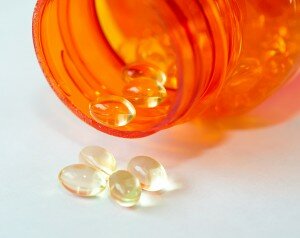Recent research continues to show the importance of Vitamin D but few understand the difference between vitamin D3 benefits over vitamin D2.
Yes, there are two forms of vitamin D. Vitamin D2 is manufactured by plants or fungus and is typically used to fortified foods like milk, cereals, and juices. This form of vitamin D is called Ergocalciferol.
Vitamin D3 is called Cholecalciferol and is synthesized by humans and animals from sunlight. When taken in supplement form it has a longer shelf life and is better for the human body. In a recently published study in the Journal of Clinical Endocrinology & Metabolism, vitamin D3 was shown to be 87% more effective in raising vitamin D levels in the blood over vitamin D2. According to the lead researcher Dr. Robert Heaney (Creigton University School of Medicine in Omaha, Nebraska),
“Given its greater potency, D3 should be the preferred treatment option when correcting vitamin D deficiency.”
Their research showed that vitamin D3 produced significantly greater bioavailability and reserve storage than vitamin D2.
Vitamin D3 Benefits
As the body of scientific research continues to grow, the number of health benefits from vitamin D3 also grows. Here is a brief summary of some of the new vitamin D3 benefits:
Helps to Maintain Calcium Balance in the Bloodstream – Vitally important to cardiovascular health is the proper maintenance of your blood calcium levels. This helps to prevent calcification of the vascular wall, which leads to arteriosclerosis. Additionally, your endothelial cells, which line all of your cardiovascular system, need calcium to be able to convert the amino acid L-arginine into nitric oxide – the master signaling molecule of your entire cardiovascular system.
Helps in Blood Pressure Regulation – Recent studies have shown that vitamin D3 may decrease the risk for high blood pressure. This would make sense since proper blood calcium levels are needed to initiate the production of nitric oxide from L-arginine. Since nitric oxide is the body’s most powerful vasodilator, it is used to relax the vascular wall to help control blood pressure.
Has a Role in Insulin Secretion – When conditions are right for increased insulin demand, vitamin D3 can play a pivotal part in insulin secretion.
Boosts Your Immunity – Studies are showing vitamin D3 to be a potent immune system modulator to help enhance your immunity while helping to inhibit the development of autoimmunity.
Aids in Cell Differentiation – Cell differentiation is needed to help cells form for specific functions in your body. While cellular differentiation is needed for growth and wound healing, uncontrolled proliferation of cells can lead to cancer. The active form of vitamin D3 inhibits this proliferation and stimulates cell differentiation.
Prevention of Osteoporosis – Vitamin D3 is recognized as the best form for balancing the amount of calcium and phosphorous within your bloodstream. This is essential for bone production and development.
Vitamin D3 Benefits versus Toxicity
There is an ongoing debate regarding vitamin D3 benefits versus toxicity resulting from vitamin D overdose. Because of this the Food and Nutrition Board of the Institute of Medicine has established a tolerable upper intake level of 2000 IU of vitamin D3. However, many research studies suggest that this upper intake level of 2000 IU is very conservative and that healthy people could increase their intake levels to 10,000 IU/day without side effects.
If you have questions in this area, then work with your health care provider to find the vitamin D3 intake that will help to bring your blood concentrations of 25(OH)D, which is the circulating vitamin D metabolite that serves as the most frequently measured indicator of vitamin D status, into a healthy range.
Vitamin D3 Benefits Increase Through the Method of Absorption
If you are going to use vitamin D3 supplements to improve your vitamin D3 benefits then make sure that the product you use is either a spray or chewable supplement. This dramatically increases absorption over those supplements that you swallow. By using the spray or chewable supplements you will achieve better results in a shorter period of time.
As you hear more and more research toting the health benefits of vitamin D, please make sure that you choose a supplement that contains vitamin D3 in a chewable form. You will improve both your absorption and effectiveness in raising this needed nutrient in your bloodstream.
Together we can work to save a million lives!
Dan Hammer
Dan Hammer has a background in biology, chemistry, and exercise physiology. He used to run one of the largest health club operations in the Chicagoland area and has been helping people with their wellness issues for more than 25 years.
The information contained in this article is for general information purposes only and never as a substitute for professional medical advice or medical exam. The information about vitamin D3 benefits has not been evaluated by the Food and Drug Administration and should not be used to diagnose, treat, cure or prevent any disease without the supervision of a qualified medical doctor.



 On Friday, October 30, 2009 Dr. Mao (Dr. Maoshing Ni) posted an article on Yahoo Health entitled
On Friday, October 30, 2009 Dr. Mao (Dr. Maoshing Ni) posted an article on Yahoo Health entitled